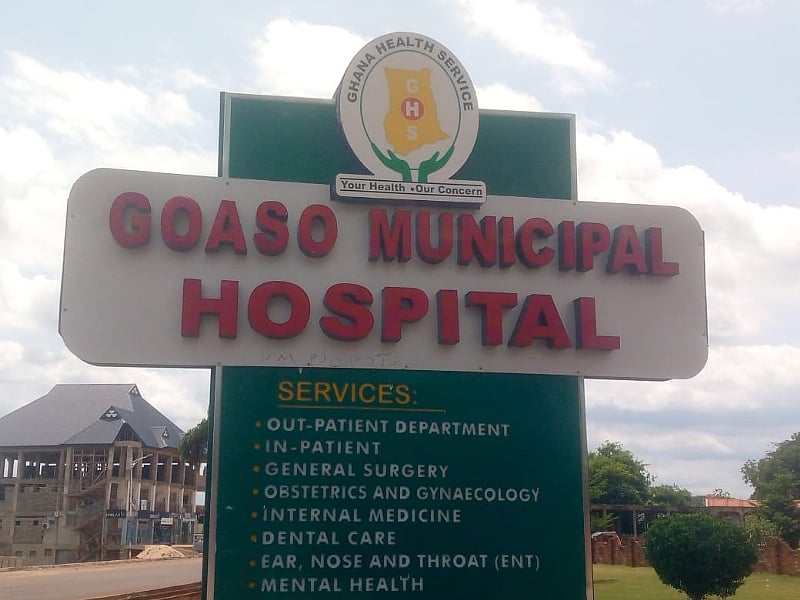The Goaso Municipal Hospital in Ghana’s Ahafo Region is grappling with a severe staffing crisis, as 59 specialist and senior nurses have resigned from their positions to pursue opportunities abroad. This alarming exodus of skilled healthcare professionals, described as “worrying” by Dr. James Ankomah, the hospital’s Medical Superintendent, is primarily attributed to unsatisfactory working conditions, including inadequate compensation, lack of motivation, and the exorbitant cost of housing in the area. The loss of these experienced professionals poses a significant threat to the hospital’s ability to deliver quality healthcare services to the community. Dr. Ankomah emphasized the urgency of addressing these issues to retain existing staff and attract new talent. He stressed that the financial burden of high rent payments significantly impacts the already meager salaries of healthcare workers, creating undue pressure and ultimately driving them to seek better opportunities elsewhere.
The impact of this staff attrition is multifaceted and far-reaching. The departure of experienced specialists and nurses creates a void in critical areas of healthcare delivery, leading to increased workloads for the remaining staff, potential delays in patient care, and a decline in the overall quality of services. Furthermore, the loss of specialized skills and knowledge can hinder the hospital’s ability to handle complex medical cases, potentially impacting patient outcomes and increasing the risk of complications. The hospital’s capacity for training and mentorship of junior staff is also compromised, creating a long-term challenge for building and sustaining a robust healthcare workforce. This exodus of healthcare professionals also places a strain on the overall healthcare system in the region, as other facilities may struggle to absorb the increased patient load and demand for specialized services resulting from the depleted capacity at Goaso Municipal Hospital.
Dr. Ankomah appealed to the government to intervene and implement effective measures to mitigate the ongoing crisis. He highlighted the critical need for government-funded residential accommodation for healthcare workers, a move that would significantly alleviate the financial burden of high rent and enhance the attractiveness of working at the hospital. Furthermore, he called for a comprehensive review and improvement of the overall conditions of service for healthcare professionals, including better remuneration packages, career development opportunities, and a supportive work environment that recognizes and values their contributions. These interventions are crucial for not only retaining existing staff but also attracting and recruiting new talent to the hospital, ensuring its long-term sustainability and the provision of quality healthcare to the community.
The issue of housing for healthcare workers is further underscored by Dr. Akosua Owusu-Sarpong, the Ahafo Regional Director of Health Services. She suggested exploring Public-Private Partnership (PPP) arrangements as a potential solution for providing affordable and accessible housing options for healthcare workers. This approach would leverage private sector investment and expertise in housing development while ensuring that the housing units are tailored to the specific needs of healthcare professionals. Dr. Owusu-Sarpong also highlighted the need for improved medical infrastructure and equipment, including essential ventilation machines for the Intensive Care Unit (ICU), emphasizing the importance of modern equipment in providing optimal patient care. She further advocated for the establishment of a regional medical store in the Ahafo Region, which would streamline the procurement and distribution of medical supplies, ensuring a consistent and reliable supply chain for healthcare facilities.
The situation at Goaso Municipal Hospital exemplifies a broader challenge facing Ghana’s healthcare system: the brain drain of skilled healthcare professionals to other countries. This phenomenon is driven by a combination of factors, including better remuneration, improved working conditions, and greater career development opportunities abroad. The loss of these professionals not only weakens the healthcare system in Ghana but also contributes to health disparities between developed and developing nations. Addressing this issue requires a multifaceted approach that includes competitive compensation packages, investments in infrastructure and equipment, and creating a supportive and rewarding work environment that values the contributions of healthcare workers.
In conclusion, the staff attrition crisis at Goaso Municipal Hospital underscores the urgent need for comprehensive reforms in Ghana’s healthcare sector. Addressing the root causes of this exodus, including poor remuneration, lack of motivation, and the high cost of living, is crucial for retaining existing staff and attracting new talent. Investing in infrastructure, such as residential accommodation and modern medical equipment, as well as exploring innovative solutions like Public-Private Partnerships, are essential steps towards creating a sustainable and robust healthcare system. Ultimately, prioritizing the well-being and professional development of healthcare workers is not only an investment in the healthcare workforce but also an investment in the health and well-being of the entire nation.














